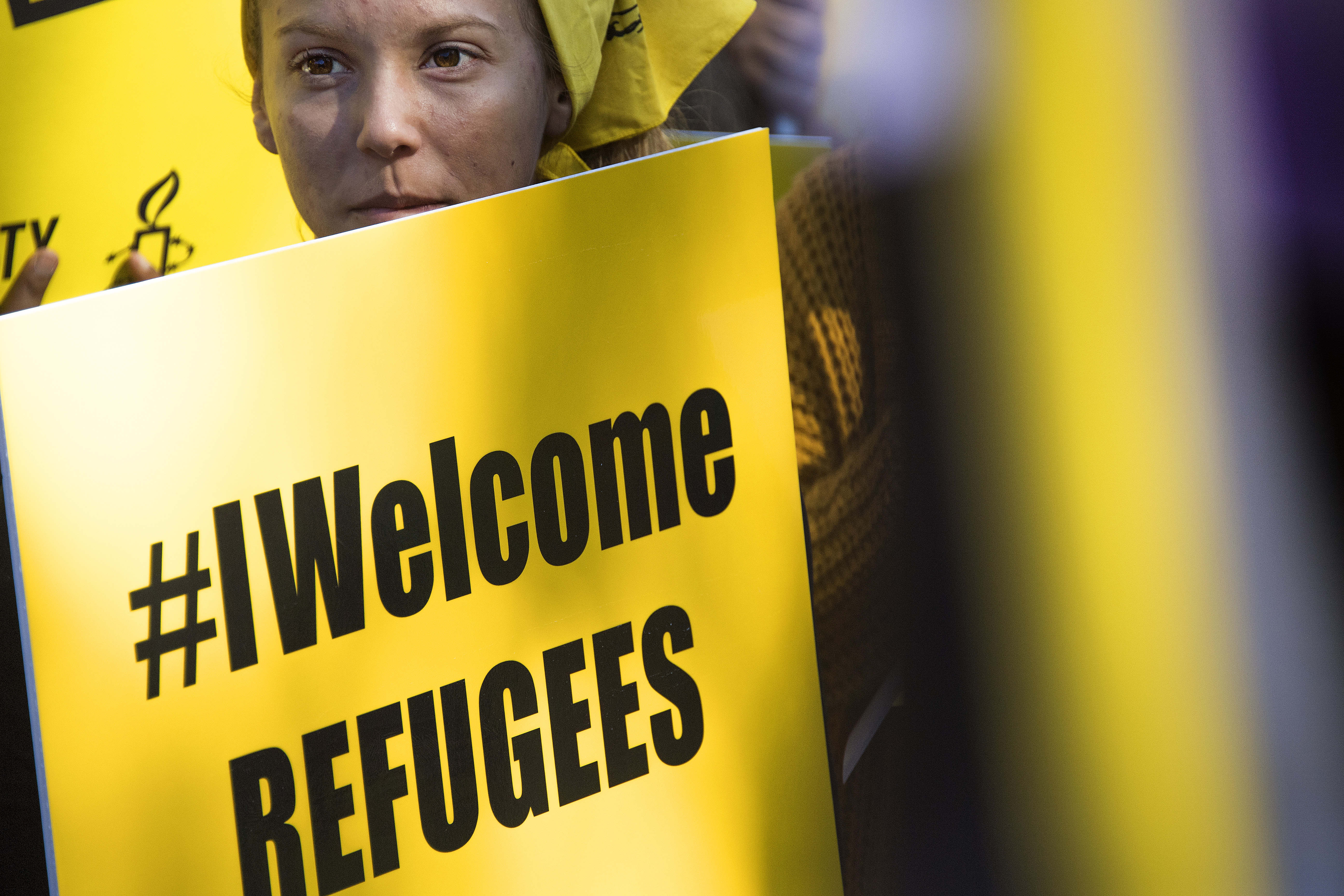The Trump administration may soon add hundreds of thousands of new immigration court cases to an already massive—and rapidly growing—backlog, as a key corner of the legal system in the United States slows to a standstill and asylum seekers suffer unprecedented wait times. The administration has promised to take sweeping measures to slash the backlog, but some legal analysts are skeptical of the administration’s actual goal, questioning whether the administration might be clogging the system to fulfill pledges to its anti-immigrant base.
Immigration authorities began the year with a heightened spike in the backlog. The number of pending immigration court cases soared by 30,000 to more than 650,000 in the first two months of the 2018 fiscal year, according to a count of public records conducted by Syracuse University and published late last week. In those two months alone, the growth in pending cases outpaced that of the entire 2017 fiscal year, the report showed.
But the administration has signaled it may soon dwarf that substantial uptick in immigration cases. Last week, Attorney General Jeff Sessions called to review the practice of so-called administrative closures, in which a judge does not rule in favor of an immigration claim but bars an immigrant from deportation while they petition for citizenship, the Associated Press reported. Among the questions Sessions posed on the closed cases, he indicated that he may consider re-opening them, the report said, effectively adding some 350,000 administratively closed cases to an already overloaded docket.
When pressed for comment, U.S. Citizenship and Immigration Services directed Pacific Standard to the Department of Justice’s Executive Office of Immigration Review. The latter did not respond by the time of publication.
If Sessions does move to re-open the 350,000 administratively closed cases, the decision would fly in the face of the administration’s recent pledges to slash its tremendous immigration court backlog in half by 2020, which unnamed administration officials told the Washington Post it aimed to do by adding more judges and updating technology in courts.
Immigration law experts observe that, while the administration claims to tackle the backlog, it is simultaneously creating more cases that fund it.
“The backlog is directly attributable to the Trump administration’s broad enforcement priorities, which do not distinguish between immigrants with longstanding ties in the U.S. and strong legal defenses to being deported,” says Richard A. Boswell, a law professor at the University of California–Hastings College of the Law.
President Donald Trump‘s fiery words and actions on immigrants fund the backlog, Boswell explains. “Under a system of laws, a person facing deportation cannot be picked up and immediately removed from the U.S. They are entitled to a hearing and that hearing is presided over by an immigration judge.”
And more judges won’t be enough to meet the need, Boswell warns. “Even if they did bring in more immigration judges, they are overloading the system. When and if this administration faces the realities of our immigration problem, they will see that we need comprehensive immigration reform that provides for legalization of many of those who are already here, and which also streamlines the process for those with good reason to be allowed into our country.”
Immigration officials underlined for the Post that, in an effort to slash the backlog, the administration had reversed the practice of prosecutorial discretion, whereby judges can set aside low-urgency cases in order to prioritize others. The administration of former President Barack Obama—which deported an unprecedented number of undocumented migrants—introduced the practice to address the growing backlog.

(Photo: Jim Watson/AFP/Getty Images)
Boswell cited prosecutorial discretion as one means of curbing—as opposed to exacerbating, per the administration officials cited in the Post—the backlog. “They should go back to the prosecutorial discretion policies instituted by the previous administration, and look for a legislative compromise that will grant a form of amnesty to many of these people whose cases are clogging up the system,” Boswell says, adding that he’s almost certain the Trump administration will do none of that. “I am not convinced that the Trump administration really cares about remedying the situation. These policies satisfy the desire by their political base, which believes that we have way to many immigrants as it is and would be happy to have those caught up in the system deported as soon as possible.”
In addition to Sessions potentially re-opening 350,000 closed cases, there’s more still that the administration is doing to burden the courts; the upheaval wrought by months of controversial anti-immigrant policies is expected to funnel hundreds of thousands more into the court system.
Likely factoring into the backlog are, barring an act of Congress guaranteeing their status, the 690,000 recipients of the Deferred Action for Childhood Arrivals program and the people rounded up in a much-touted recent surge in Immigration and Customs Enforcement arrests following directives in executive orders that Trump signed shortly after his inauguration last year. On Monday, the administration announced its decision to discontinue temporary protected status for some 200,000 Salvadoran escapees of natural and political disaster. Many of those Salvadoran Americans may also end up in immigration court, particularly as a large proportion are married to U.S. citizens. Others have little hope of a successful court bid to remain in the U.S., despite having children who are U.S. nationals.
The backlog has left many families burdened and analysts with little faith in the functions of government. And now, everyone seems to be struggling to interpret whether the Trump administration is doing what it claims to be doing, or if it’s engaged in some complex act of brinkmanship.





